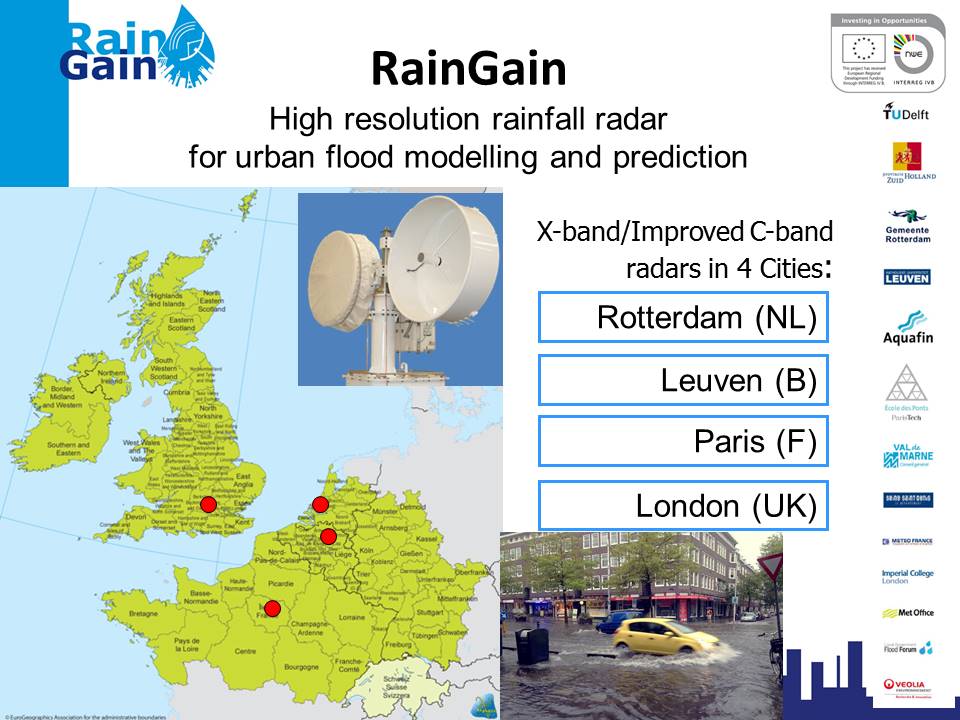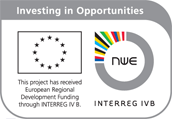6th October 2014: International Workshop on Urban Pluvial Flood Modelling
|
The RainGain International Workshop on Urban Pluvial Flood Modelling took place on 6th October 2014 at the Met Office Headquarters in Exeter, UK. Ninety people attended, including practitioners and academics from a number of universities, water companies, engineering consultants, local authorities, and regional and national environmental and meteorological agencies from across Europe (see delegates list).
|

From left to right: Jonathan Millard (Flood Forecasting Centre, UK), Laurent Monier (Veolia, FR), Graeme Boyce (Flood Forecasting Centre, UK), William Neale (Thames Water, UK) and Stefan Kroll (Aquafin, BE) discuss the use of surface water flood models for real-time applications.
|
The workshop provided an opportunity for experts to share and discuss ideas around the topic of urban pluvial flood modelling, forecasting and management: recent developments were discussed, and recurrent challenges were reviewed. New challenges were also identified, challenges which have emerged as a consequence of the increasing availability of data, model complexity, an ever changing urban society, as well as the difficulties posed by both technological and administrative barriers, amongst other factors. The workshop served to emphasise that, although fast progress has been made in the modelling and forecasting of urban pluvial flooding over the last few years, more needs to be done to bridge the large gap that still exists between research and operational systems.
Dr Crystal Moore, Head of the Flood Forecasting Centre (FFC), welcomed attendees and gave an overview of the services provided by the FFC. Crystal highlighted the risk that urban pluvial (surface water) flooding poses to England and the need for research to support the work that the FFC does in forecasting and warning of this type of flooding.

Overview of RainGain Project by Marie-Claire ten Veldhuis
|
RainGain project coordinator, Dr Marie-Claire ten Veldhuis, followed this up with an overview of the work that the RainGain consortium has done in improving rainfall estimates at urban scales, with the final purpose of improving the modelling, forecasting and management of urban pluvial flooding.
|
After these two introductory talks, the bulk of the workshop was split into 4 sessions, each one focusing on one of the following topics:
- Topic 1: Approaches to the modelling of urban storm water drainage systems and urban pluvial flooding
- Topic 2: Approaches and techniques for rapid urban pluvial (surface water) flood modelling
- Topic 3: Urban drainage/pluvial flood model calibration, verification and uncertainty estimation
- Topic 4: Operational urban pluvial flood models for real time application
Each session comprised technical presentations by international experts (presentations can be downloaded from the panel on the right), followed by interactive discussion around the given topic. Some of the main points discussed and conclusions reached during each of the sessions are summarised in this file.
At the end of the workshop attendees were taken on a tour through the Met Office Operations Centre and Flood Forecasting Centre.



